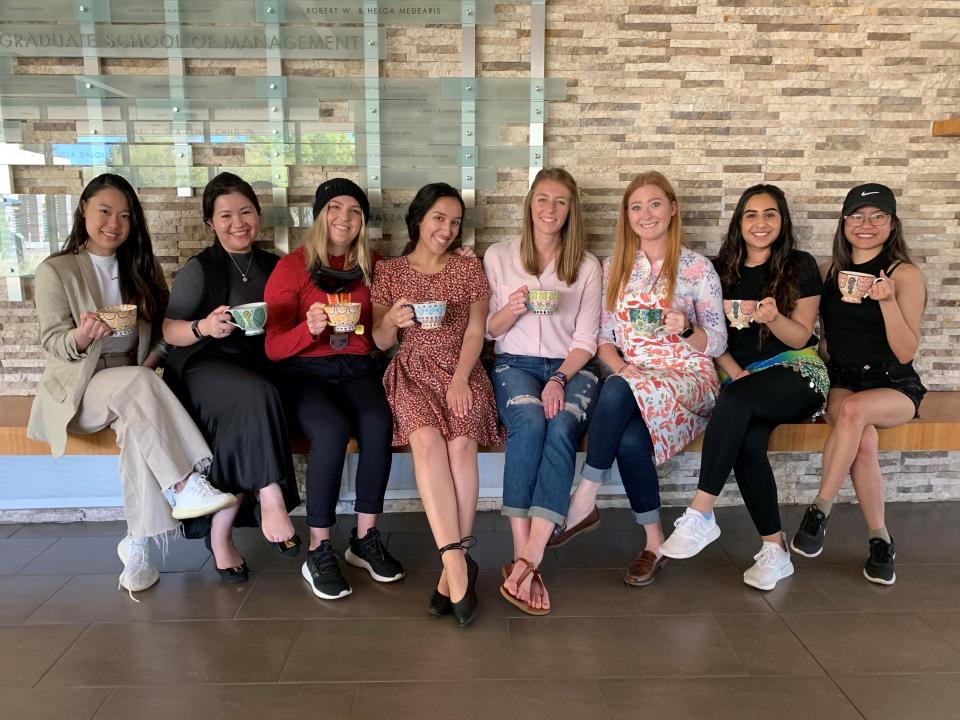COVID-19 Outbreak: An Opportunity to Sharpen My Communications Skills
Winter course helps us identify biases and hone our presentations
Most graduate students have obstacles to overcome while earning their degree. Whether it’s a major life event like the birth of a child, a sick relative or challenges in the classroom. For the class of 2020, it’s been the fallout from the COVID-19 outbreak. Fortunately, a course I took this past quarter helped me develop useful communication skills during the crisis.
As the COVID-19 pandemic escalated and spread around the world, “shelter in place” orders quickly forced our classes to shift online.

But our group of 20 Master of Professional Accountancy students had already been meeting for eight weeks to learn how to write more efficiently, research the uses of analogies, how biases affect communication, and hone our skills giving presentations and speeches.
Supporting Opinion
In the first few weeks of the Communications for Professional Accountants course, we learned about analogies and biases that can be used to support opinions. Lecturer Daniel Kennedy curated several articles and readings for us to dive into.
One lesson that stood out discussed “System 1” and “System 2” thinking from the book, Thinking, Fast and Slow by Daniel Kahneman. “System 1” thinking is when communicators use their instincts and unconsciousness to think and respond. “System 2” thinking is when communicators analyze information that is given to them to avoid biases.
Understanding these two dynamics is a crucial to becoming a good communicator. When we are given different types of information, oftentimes our thoughts get clouded by what we already know and become more biased towards a previously-held opinion.
However, by learning about “System 2” thinking, and by recognizing these analogies and biases, we are able to identify these obstacles. We can then identify our opinions, step back and look at the big picture to recognize the problem itself. This will allows us to think more clearly and make better decisions.
Especially today, it’s important for each of us to recognize our predispositions and opinions, set those aside and base decisions on verified facts. The Coronavirus pandemic has made it clear: We all need accurate, timely information to make decisions that ultimately help the greater global community.
Climbing The Communications Ladder
We also learned new skills to help us speak on various topics with or without props. This further helped me get my points across more effectively.

As an introvert, the first few speeches were not easy for me. I got nervous. I even forgot a huge chunk of my speech one time. However, because of the support from my classmates and Kennedy, I was able to persevere and made significant improvement.
By the end of the quarter—even as our class was moved online in the final weeks—I noticed dramatic improvements in my presentation skills. I was more confident. As Kennedy described, our ability to learn new skills is like slowly but surely climbing to the top of a ladder.
Seeing The Bigger Picture
The communication class has helped me in my day-to-day life in many ways. I’ve been able to more effectively get my point across to others. As I start my career, these skills will help me in my work life by improving my communication with supervisors, colleagues and clients. This class has also thought me that we have to see the bigger picture in order to truly make the best decision and understand the core problem.
As we adjust to the circumstances of the virus outbreak, I’m reminded how fortunate we are at UC Davis to have access to resources and complete our learning goals. In the last few weeks, faculty and staff quickly moved classes online and kept us informed with clear communications.
The university further supported students by keeping the library and computer labs open through the end of winter quarter so that students could use them while maintaining proper social distance.
I am grateful that UC Davis has been so supportive of students during these trying times.